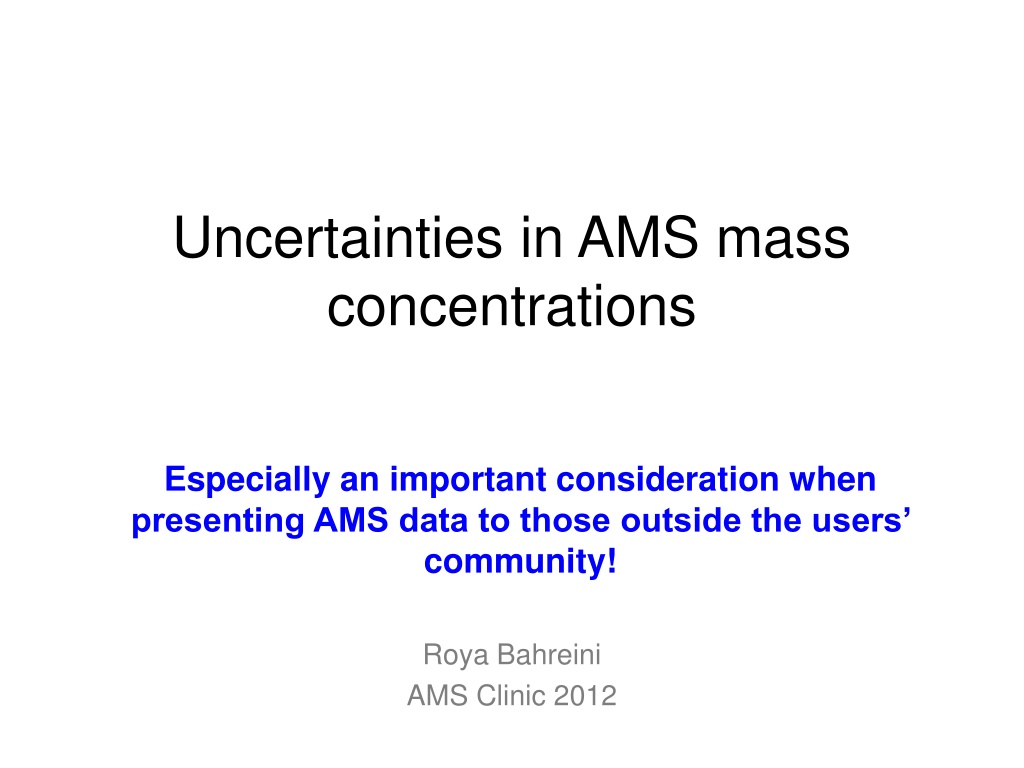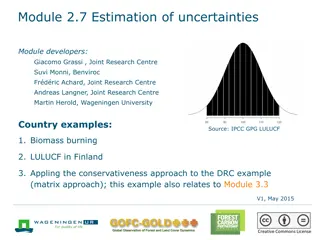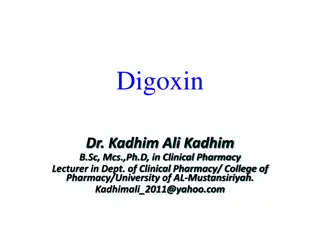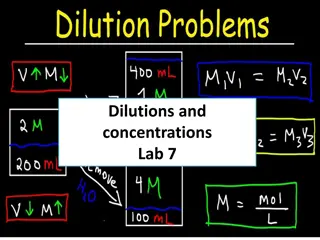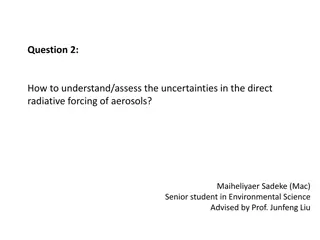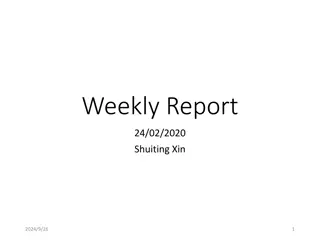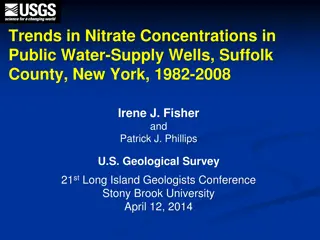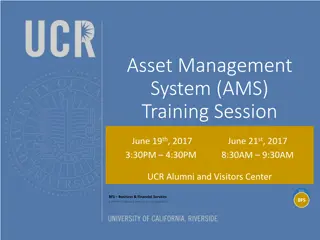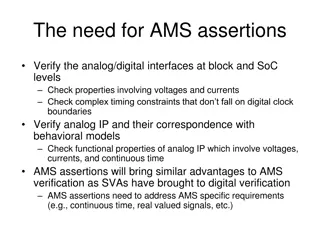AMS Mass Concentrations Uncertainties
Consider uncertainties in AMS mass concentrations when presenting data outside the users' community. Learn about error propagation, overall uncertainty, and mass closure ratios. Understand the importance of accuracy versus precision in data interpretation. Ensure accuracy in mass ratio calculations by accounting for uncertainties in various parameters.
Download Presentation

Please find below an Image/Link to download the presentation.
The content on the website is provided AS IS for your information and personal use only. It may not be sold, licensed, or shared on other websites without obtaining consent from the author.If you encounter any issues during the download, it is possible that the publisher has removed the file from their server.
You are allowed to download the files provided on this website for personal or commercial use, subject to the condition that they are used lawfully. All files are the property of their respective owners.
The content on the website is provided AS IS for your information and personal use only. It may not be sold, licensed, or shared on other websites without obtaining consent from the author.
E N D
Presentation Transcript
Uncertainties in AMS mass concentrations Especially an important consideration when presenting AMS data to those outside the users community! Roya Bahreini AMS Clinic 2012
Calculating mass concentrations 1 1 1 1 mass species IE RIE CE Q 3 NO species Parameter IENO3 RIEspecies Uncertainty 10% Procedure Reference Routine NH4NO3 cals Jimenez et al., 2003; Alfarra et al., 2004; Canagaratna et al., 2007 NH4+ SO42- 10% Routine NH4NO3 cals Previous lab+ computational results Previous lab+ computational results Previous lab+ field results Routine cals 15% OA 20% CE 30% Matthew et al., 2008, Middlebrook et al., 2012 Q <0.5% TE 10% Lens transmission Bahreini et al., JGR, 2009
Error propagation John R. Taylor. (1997) An Introduction to Error Analysis: The study of uncertainties in physical measurements. (Second Edition) Sausalito, CA: University Science books.
Overall uncertainty Q, IE, CE uncertainties 33% 33% 35% 37% Q, IE, CE, TE uncertainties 34% 34% 36% 38% NH4+ NO3- SO42- OA Total AMS mass: Overall uncertainty of 20-35% Note: uncertainty in the ratios may be better since some of the parameters cancel out (for example, NH4/SO4 has a better uncertainty since uncertaitny in IENO3, CE, and Q cancel out.
Accuracy (uncertainty) vs. Precision http://upload.wikimedia.org/wikipedia/commons/thumb/3/3a/High_precision_Low_accuracy.svg/100px-High_precision_Low_accuracy.svg.png http://upload.wikimedia.org/wikipedia/commons/thumb/1/10/High_accuracy_Low_precision.svg/100px-High_accuracy_Low_precision.svg.png Low Accuracy High Precision High Accuracy Low Precision Precision: Noise in the data detection limit
Mass Closure Mass Ratio =(AMS mass+BC mass)/(volume ) AMS mass: 30% uncertainty BC mass: 15% uncertainty Volume: 30-45% uncertainty from UHSAS mass weighted density ( ): 7% uncertainty (10% uncertainty of OA ) + 2 4 + + + + NH + NO SO OA BC 4 3 = + 2 4 + + + ( . 1 / ) 75 . 1 / 25 8 . 1 / NH NO SO OA BC 4 3 Mass Ratio: Overall uncertainty of 45%
Mass closure: Mass Ratio http://upload.wikimedia.org/wikipedia/commons/thumb/1/10/High_accuracy_Low_precision.svg/100px-High_accuracy_Low_precision.svg.png x 2 circle of combined uncertainties Middlebrook et al., AST, 2012
Aerosol Acidity Effect CEdry = max (0.45, 1.0 0.73 NH4/NH4,predict) [Eq. 4] Apparent CE (AMS w/ CE=1) Acidity , CE NH4+,predict=18 (2 SO42-/96+NO3-/62+Cl-/35)
AerosolNitrate Effect CEdry = max(0.45, 0.0833 + 0.9167 ANMF) [ Eq. 6] Apparent CE (AMS w/ CE=1) ANMF , CE ANMF=80/62 NO3-/(SO42-+NO3-+Cl-+NH4++OA)
